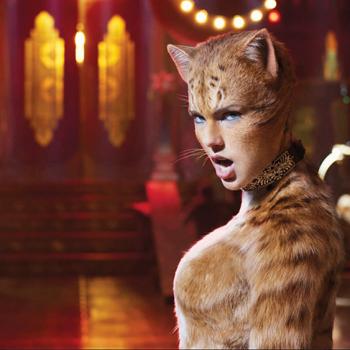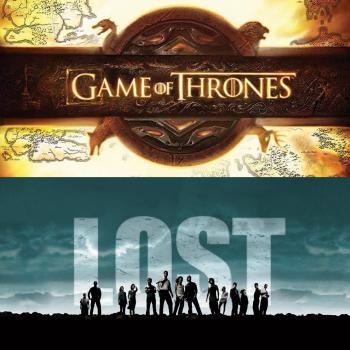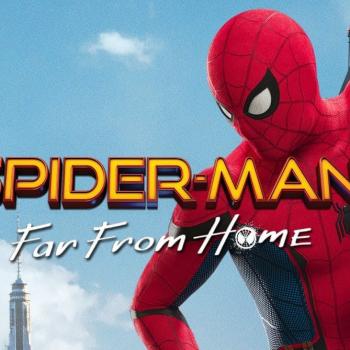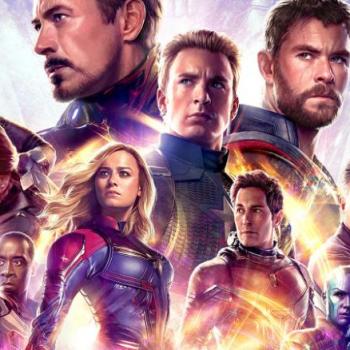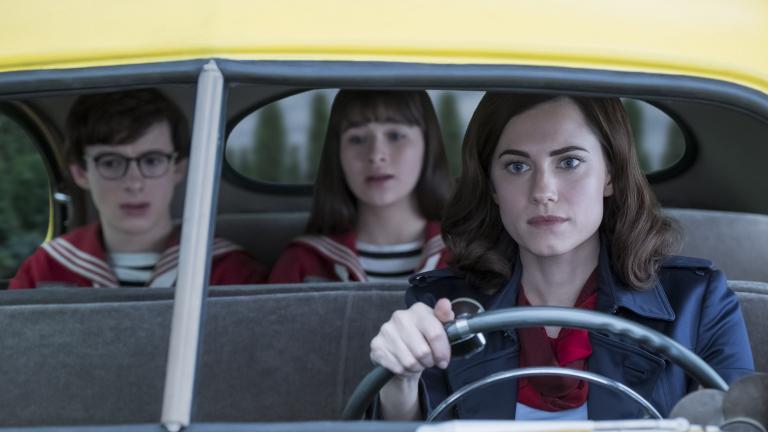
Warning: Spoilers for all Series Episodes
Season Three of A Series of Unfortunate Events is anything but what the title suggests. And for fans of either the book series or the Netflix adaptation:
This final season is not only satisfying, but genuinely moving.
It’s the Count, It’s the Count, It’s the Count
When Neil Patrick Harris began his interpretation of the villainous Count Olaf, it was difficult not to compare him to Jim Carrey’s impressive turn in the otherwise poor 2004 movie adaptation. Harris seemed too small to play the Baudelaire’s only big bad. And despite some impressive make-up, Harris’ Harrishness – such a boon on How I Met Your Mother‘s nine year television run – interfered with the ability to see the actor subsume himself in the new role.
However, as Harris has had now several years, three seasons, and 25 episodes to play the entirety of Olaf’s character arc, I wonder that I ever doubted his talents. While it was always fun to see Harris in his various disguises, the third season sees – if not a redemption arc for Olaf – then certainly an origin arc. The addition of backstory to the adult world helps deepen Olaf’s own bad beginnings, while the dramatization of certain scenes which were already poignant in the book, such as Olaf’s demise, actually made me cry profoundly.
Harris’ approach to the final twists and turns of a big bad plagued by his own villainous mentor figures, the loss of his sycophants, the return of his true love, and the last moments of hope and despair are enough to convince me that it was the opportunity to play this part of Olaf (hinted at, but not fully realized in the books) that intrigued Harris from the beginning of the project.
Harris’ Olaf is a masterclass in how to craft a nuanced character that straddles idiocy, menace, and pathos.
If you watch the series for nothing else than his performance, I highly recommend you do so.
The Rogues Gallery
Nor is Olaf alone among the dramatic character arcs and near-redemptions (or near-villainizations). In the books, the Hook-Handed Man comes back towards the light: first through his genuine affection for Baby Sunny, and then through being reunited with his sister in The Grim Grotto. The beauty of adapting Series after it had been entirely published – unlike, say, the Harry Potter or Game of Thrones franchises – is that actor Usman Ally, as well as the screenwriters, were able to layer in the Hook-Handed Man’s tarnished heart of gold from the beginning.
The child actors also step up their game, especially in The Grim Grotto where Klaus has to navigate burgeoning feelings towards a new companion, Fiona Widdershins, as well as his sister’s, Violet’s distrust of the same. The Pentultimate Peril’s second episode which includes the long-awaited trial of Count Olaf also gives both Klaus and Violet the opportunity to shine as they finally list the injustices they have suffered since the beginning. It’s a moment of sheer catharsis, brilliant underscored, and beautifully edited and directed by series producer, Barry Sonnenfeld.
Lucy Punch continues to pack a punch as Esme Squalor, and if her emotional arc isn’t quite as rounded, her performance is delightfully absurd – particularly once paired with Kitana Turnbull as the overly-cute Carmelita Spats. Count Olaf’s associates, all of whom survive in the TV series although not in the books, are given a triumphant moment of walking out on Olaf’s schemes once even he crosses the line of threatening a baby’s life.
Newcomer Allison Williams (Girls) as the third Snicket sibling, Kit, is perhaps less dashing than Nathan Fillion’s Jacques Snicket and less droll than Patrick Warburton’s Lemony Snicket, but she holds her own as perhaps one of the most sane adults to ever grace the world of Unfortunate Events. Max Greenfield as triplets Dewey, Earnest and Frank Denoument is simply perfection: giving subtly different performances for each brother, that leave you guessing which one is which and yet sure that he is three different people. His turn as Dewey is particularly effecting, considering that his limited screentime must include not only several in-world revelations, but a doomed love story, and a truly tragic ending.
One of my favorites, Larry Your-Waiter, played by Patrick Breen, is a nod to the extra-textual Unauthorized Autobiography. Since he never appeared as a fully fleshed out character in the books, the adaptation has had fun giving this VFD agent various cameos in each season. All of which conclude tragically and suddenly – and appropriately – in The Pentultimate Peril. It’s a testament to the writers of the TV series that they made me care about what could have been a plot device character, and that they had the stones to conclude his arc as they did.
Bad Beginnings, Ambiguous Endings
For those interested in having mysteries from the book solved, you’re in luck. The identity of the Man With A Beard But No Hair and the Woman With Hair But No Beard are revealed, as are (at last!) the contents of the much-disputed sugar bowl. Lesser questions such as the origins of VFD and the identity of Ishmael are also laid to rest, in a satisfactory but not overly-tidy manner.
As for the identity of Beatrice, and what exactly happened to cause the schism between noble and villainous VFD members, we’re treated to a series of disjointed flashbacks that partially reveal the world of the adults which has plagued the lives of the Baudelaires. (And it’s wonderful to see Beatrice, played by Morena Baccarin, in the flesh!)
Fans of the book know that Kit Snicket gave birth to a baby girl at the end of The End, named after the Beaudelaire’s mother, Beatrice. In The Beatrice Files, a companion extra-textual book to the main series, it’s implied that Beatrice II is searching for her uncle, Lemony Snicket. It’s a real joy, therefore, to conclude with the Snickets reuniting and sharing their stories, in a TV-only “Chapter Fourteen” – the perfect conclusion to the Series.
That’s Not How the Story Goes
While I missed Neil Patrick Harris’ musical numbers, which were a feature of the first two series, there’s an effective call-back to Season 1’s “That’s Not How The Story Goes” in The Pentultimate Peril that reminds the viewer, forcibly, that we have been watching a tragedy: that our world is one where good people may die young, and sometimes evil triumphs.
It’s rare to see a tragedy written for young people by an American author. But there’s a reason why tragedies exist: because sometimes life is a tragedy, and it’s more helpful to know that you’re not alone in going through your sorrow, than be fed some sort of “cheer up, Charlie!” palaver. It’s comforting to be reminded that although you can only see your piece of the puzzle, there’s hope outside of your own story. And that the story continues outside of yourself.
You are not alone.
I have quite a few more thoughts about A Series of Unfortunate Events, but in the meantime tell me what you thought in the comments below! Did you cry at The End? Did you like the changes made to the books in adapting them to a Netflix series? Do you watch the show alone or with your kids? I want to know!
 Photo courtesy of Netflix
Photo courtesy of Netflix
Become my patron on Patreon for as little as $1/month!



